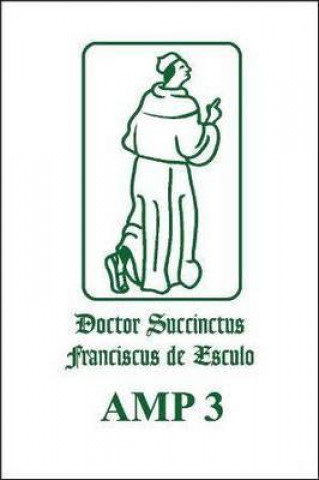
Kod: 05054615
Francisci de Marchia-Quaestiones in secundum librum sententiarum (Reportatio)
In the questions contained in this volume, Francis of Marchia explores subjects that earned him his fame in the Middle Ages and in the history of ideas: physics and philosophical psychology. He confronts the key issues in celestia ... więcej
- Język:
 Angielski
Angielski - Oprawa: Twarda
- Liczba stron: 450
Wydawca: Leuven University Press, 2013
- Więcej informacji o książce

Zobacz książki o podobnej tematyce
-

Cleaned Out
49.05 zł -12 % -

Francis White and Co.'s History and Antiquities of Coventry ... and a Special Article on the Geology of Warwickshire, Etc.
100.75 zł -5 % -

Re-Visioning Europe
564.63 zł -

Understanding Group Behavior
282.76 zł -
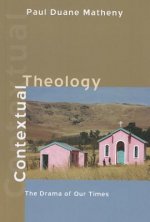
Contextual Theology
118.66 zł -
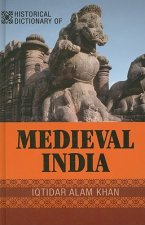
Historical Dictionary of Medieval India
757.54 zł -

The Effects of Infectious Disease on Napoleon's Russian Campaign
64.01 zł -

Poetics of Architecture
426.11 zł -

If This World Falls Apart
76.85 zł -

Building Feminist Movements and Organizations
458.85 zł -10 % -

Witcha
70.51 zł -14 % -

Increasing Access to College
199.45 zł -

English Episcopal Acta 29
478.80 zł -

Assembly of the Poor in Thailand
126.72 zł -5 %
Bon podarunkowy: Radość gwarantowana
- Podaruj bon o dowolnej wartości, a my się zajmiemy resztą.
- Bon podarunkowy dotyczy całej naszej oferty.
- Możesz wydrukować elektroniczny bon z e-maila a następnie przekazać go obdarowanemu.
- Ważność bonu wynosi 12 miesięcy od daty wystawienia.
Powiadomienie o dostępności
Wpisz swój adres e-mail, aby otrzymać od nas powiadomienie,
gdy książka będzie dostępna. Proste, prawda?
Więcej informacji o Francisci de Marchia-Quaestiones in secundum librum sententiarum (Reportatio)
Za ten zakup dostaniesz 140 punkty
 Opis
Opis
In the questions contained in this volume, Francis of Marchia explores subjects that earned him his fame in the Middle Ages and in the history of ideas: physics and philosophical psychology. He confronts the key issues in celestial physics, concluding with his well-known proofs for terrestrial and celestial beings having the same type of matter (q. 32). Marchia's discussion of how elemental qualities persist in mixtures (qq. 33-36) leads to a spirited and unique defense of a mind-body dualism: not even the sensory faculties are coextensive with the body (q. 37). Moreover, each living being has two forms: the soul and the form of the body (q. 38). Marchia rejects the Averroistic doctrine of the unicity of the intellect (qq. 39-40), as well as acts of understanding being entirely the result of external stimuli (q. 41). Those positions in turn inform his investigation of the mechanics of thinking and willing, and his establishment of the will's priority over the intellect (qq. 42-47). Finally, Marchia balances human free willing with God's absolute power and cooperation in all matters (qq. 48-49). Throughout these questions, Marchia shows his originality and sharp intellect. Although at times his solutions look similar to those of John Duns Scotus, they are in fact very different, reflecting Marchia's awareness of the problems and limitations involved in not only Scotus' views, but also those of Aristotle and Averroes, Thomas Aquinas and Henry of Ghent, among many others.
 Szczegóły książki
Szczegóły książki
Kategoria Książki po angielsku Humanities Philosophy History of Western philosophy
241.06 zł
- Pełny tytuł: Francisci de Marchia-Quaestiones in secundum librum sententiarum (Reportatio)
- Podtytuł: Quaestiones 28-49
- Język:
 Angielski
Angielski - Oprawa: Twarda
- Liczba stron: 450
- EAN: 9789058678942
- ISBN: 9058678946
- ID: 05054615
- Wydawca: Leuven University Press
- Waga: 962 g
- Wymiary: 173 × 248 × 35 mm
- Data wydania: 04. March 2013
Ulubione w innej kategorii
-

Meditations
45.32 zł -14 % -

The Myth of Sisyphus
29.30 zł -4 % -

Why I Am so Clever
15.61 zł -21 % -

Meditations
50.46 zł -26 % -

Republic
57.71 zł -5 % -

Beyond Good and Evil
47.34 zł -23 % -

Gay Science
65.57 zł -4 % -

Aphorisms on Love and Hate
11.17 zł -26 % -

Beyond Good & Evil
61.14 zł -23 % -
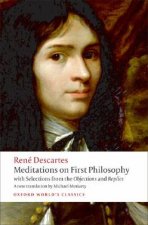
Meditations on First Philosophy
47.34 zł -23 % -
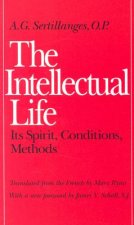
Intellectual Life
97.50 zł -5 % -

Socrates' Defence
15.30 zł -23 % -
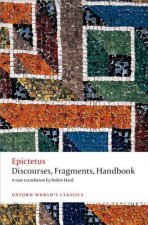
Discourses, Fragments, Handbook
52.37 zł -15 % -

Ride the Tiger
105.76 zł -4 % -

Thus Spoke Zarathustra
47.04 zł -14 % -

Fear and Trembling
47.34 zł -23 % -

Birth of Tragedy
15.30 zł -23 % -
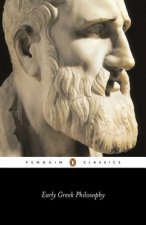
Early Greek Philosophy
61.14 zł -23 % -
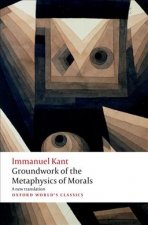
Groundwork for the Metaphysics of Morals
47.34 zł -23 % -
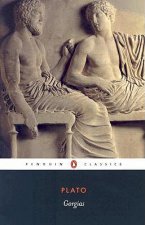
Gorgias
45.62 zł -5 % -
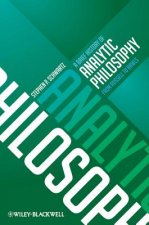
Brief History of Analytic Philosophy - From Russell to Rawls
163.89 zł -3 % -
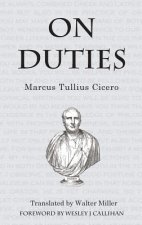
On Duties
57.51 zł -5 % -

Discourses and Selected Writings
52.37 zł -15 % -

Nicomachean Ethics
24.57 zł -23 % -

Nausea
47.34 zł -23 % -

Letters from a Stoic
47.34 zł -23 % -

Meditations
101.84 zł -4 % -

Simulacra and Simulation
86.12 zł -12 % -

Phenomenology of Spirit
93.68 zł -5 % -

Twilight of the Idols with The Antichrist and Ecce Homo
24.57 zł -23 % -

On Liberty, Utilitarianism and Other Essays
38.27 zł -23 % -
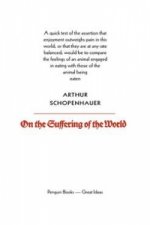
On the Suffering of the World
25.07 zł -26 % -

Human Condition
95.79 zł -4 % -

On the Shortness of Life
38.27 zł -14 % -

Existentialism Is a Humanism
45.52 zł -4 % -

Think
51.97 zł -23 % -

Guide to the Good Life
74.33 zł -9 % -
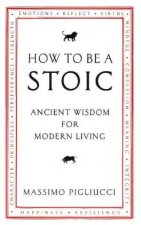
How To Be A Stoic
73.63 zł -15 % -

The Symposium
45.62 zł -5 % -

Human, All Too Human & Beyond Good and Evil
24.57 zł -23 % -

At The Existentialist Cafe
53.18 zł -3 % -

Undiscovered Self
121.58 zł -
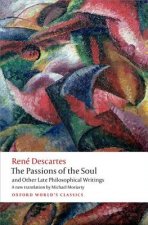
Passions of the Soul and Other Late Philosophical Writings
51.87 zł -23 % -

The Trouble With Being Born
65.57 zł -4 % -
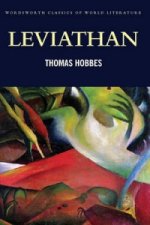
Leviathan
24.57 zł -23 % -
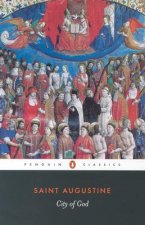
City of God
77.56 zł -5 % -

Ecce Homo
42.70 zł -23 % -
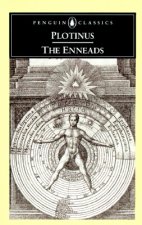
Enneads
70.41 zł -23 % -

On Friendship
33.64 zł -23 %
zadowolonych klientów
Od roku 2008 obsłużyliśmy wielu miłośników książek, ale dla nas każdy był tym wyjątkowym.
Copyright! ©2008-24 libristo.pl Wszelkie prawa zastrzeżonePrywatnieCookies



 21 milionów książek
21 milionów książek Dostawa 10.99 zł
Dostawa 10.99 zł (32) 444 93 66 (8-15.30h)
(32) 444 93 66 (8-15.30h)